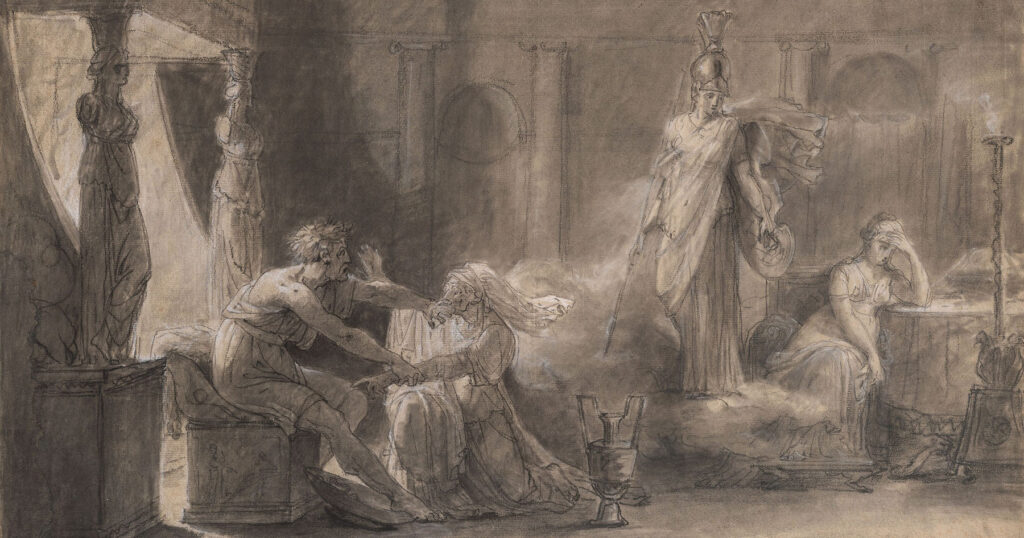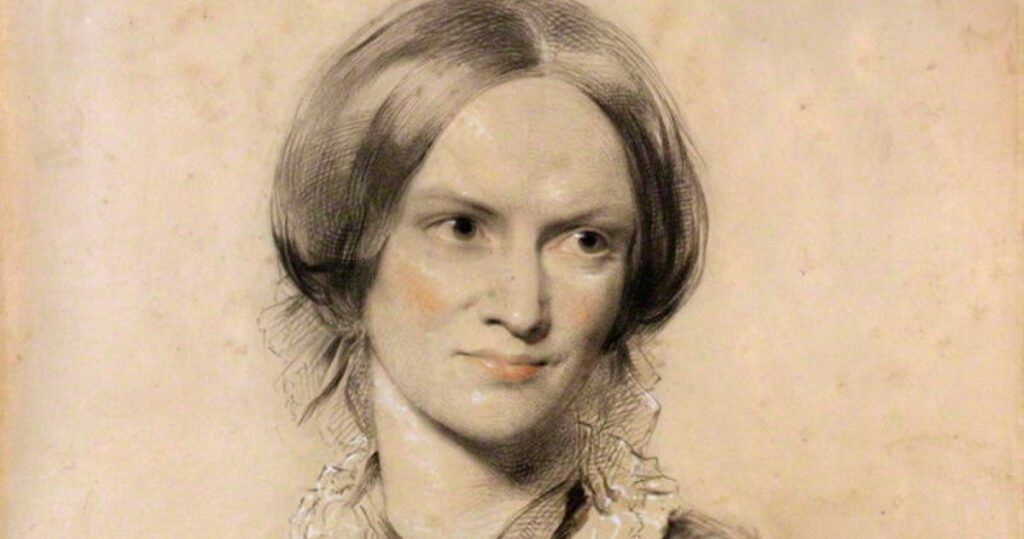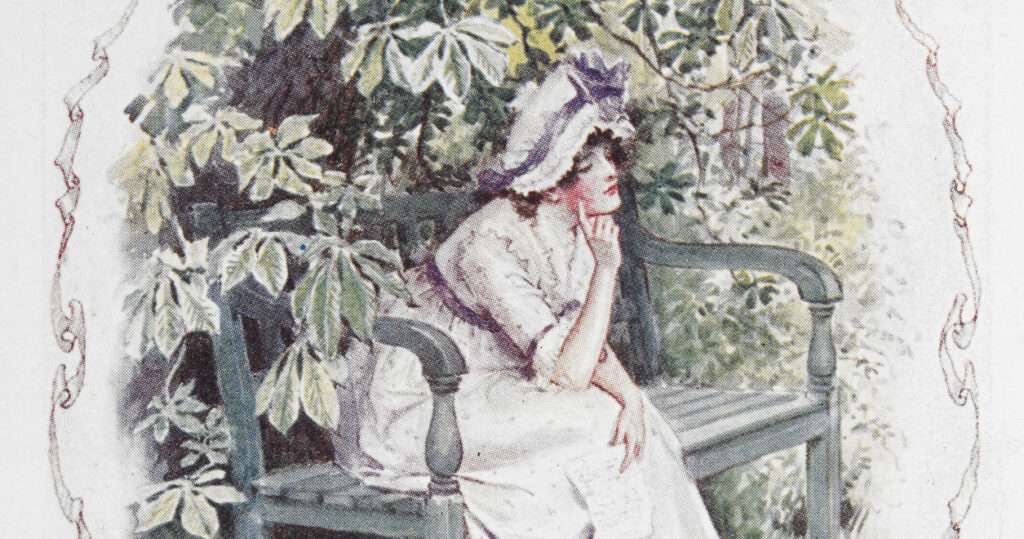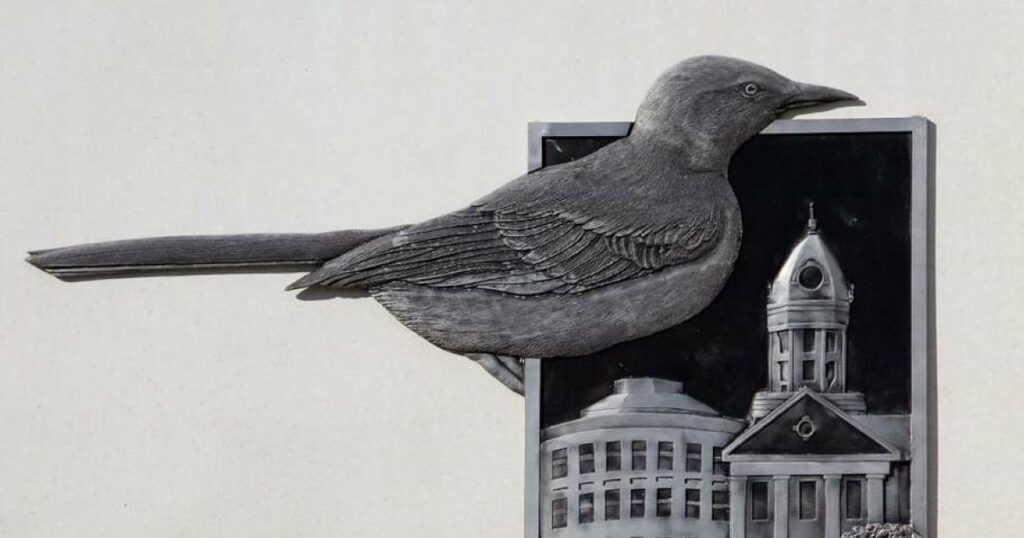A literary reflection by Davis Smith on Homer's Odyssey. This is one installment of a monthly series providing reflections on works of literature from a Lutheran perspective.
No finer, greater gift in the world than that ... when man and woman possess their home, two minds, two hearts that work as one. –Odyssey, 6.200–202
The home is the center of earthly life while we are pilgrims and sojourners in this world. In the home, life is generated, sustained and fostered by husband and wife who have become one flesh. In the home, children learn the meaning of love, virtue, work, responsibility and selfhood from their parents as they prepare for eventual participation in society as adults. In the home, faith is sustained as members of the church grow in their understanding of their Baptism, building each other up and passing down an abiding love for Word and Sacrament.
The home is truly a “little kingdom” with mother and father as monarchs, and our Lord has promised to bless the place where meals are made and shared, hard work is accomplished, leisure is enjoyed, memories are formed, love is shown in action, and where trials necessitating patience and joys necessitating gratitude are undergone.
Simply put, the preservation and prosperity of the home — and the traditional family which dwells in it — is worth fighting for more than anything else. One of the oldest works of literature in history, written by a pagan Greek more than 700 years before the birth of our Savior, can help us recognize this fact.
For 1500 years, the Odyssey has exerted a deep and fascinating spell on the Western mind. Many at least know the basic story: the great warrior Odysseus, attempting to return home from the Trojan War, finds himself the victim of immense misfortune until, after 10 years, he finally reaches his home island of Ithaca and reclaims his rightful position as husband, father and king. But more than just a timelessly exciting adventure tale, the Odyssey has a series of remarkably profound — and deeply Christian — truths at its core.
The ‘universal longing for a Champion and Advocate’
Philip Melanchthon, the great early Lutheran confessor and scholar, had effusive words of praise for the epic poem, declaring it second only to the Scriptures in terms of “elegance and pleasantness.” Melanchthon was enchanted not only by Homer’s eloquent poetic language, but by the images of the good life and the perils that threaten to destroy it which fill the story of the homeward wanderer.
In the suffering of Odysseus, Melanchthon sees a prefiguration of the Christian whose sufferings are given meaning by the hidden God in the theology of the cross: Odysseus is unknowingly supported throughout his journey by the goddess Athena, who, once he has finally washed ashore on Ithaca, reveals herself to him as the guiding hand of protection who has strengthened him through all his tribulations. Melanchthon also sees in Odysseus a model of a steadfast, faithful, pious warrior who will stop at nothing to reach his final destination. He is for Melanchthon an “ideal type” of the Christian who always keeps his eyes fixed on the life to come amidst the dangers and temptations of this world.
Certainly, Melanchthon’s praise is hyperbolic. We must acknowledge that, for all of the beautiful, stirring examples of faithfulness and valor in the epic, Odysseus is spectacularly flawed. He is unfaithful to his marital vows, dishonest, brash, headstrong and impetuous. Though like Christ, he returns to his kingdom as a mighty victor over death, unlike our Savior, he bears the sword rashly and brutally. This is particularly evident in the climactic scene, where he slays all the squatters who have taken over his halls in a merciless bloodbath.
In many ways, Odysseus is reminiscent of so many great figures of the Bible, such as Abraham, Samson and David: deeply admirable and even heroic, but also a sobering reminder of the spectacular fallenness of humanity. Odysseus thus becomes a means by which readers can contemplate and discuss the notion of a hero, ultimately concluding that Christ alone has truly fulfilled that universal longing for a Champion and Advocate against the forces of death. And his long-suffering wife Penelope is a model of patience, occupying her position as queen of the home while resisting the advances of her suitors and acting as a faithful mother to her son. With such patience and fidelity, Christ’s bride, the church, awaits His return.
‘Moments of inexplicable, miraculous beauty and joy’
The Odyssey also stands out among Greek literature for the similarities it shares with a Christian worldview.
Greek heroes were expected to adhere to an ethic of self-glorification. With tenuous beliefs concerning what comes after death, the most that the Greeks could hope for in a world of cruel fate was a lasting name for themselves in the memory of others. But the Odyssey seems to implicitly reject this assumption. Instead, it treats home and the family as an incarnation of paradise, the closest we can get to heaven on earth. This is a belief that Christians can firmly echo, as marriage and child-rearing provides a concrete portrait of the sacrificial love that Christ has for the church, which is His bride and flock. Outside of the gifts we receive in the Divine Service, the well-ordered home is indeed the closest foretaste we get to heaven on earth.
With this in mind, it is also highly significant that the Odyssey is the rare work of pagan literature that ends in redemption and fulfillment instead of tragedy and despair. The epic seems to catch a glimpse, however fleeting and incomplete it may be, of a sublime world-picture beyond the darkness of paganism, where the tears of the faithful will be wiped away and all shall be well for those who place their trust in permanent things over the distractions of the world. A mysterious, palpable sense of joy and wonder permeates this tale, and readers should try to discern these attributes as they embark upon this marvelous journey.
The Odyssey is the earliest example of a literary comedy wherein suffering is overcome, severed relationships are restored, and the narrative ends with a feast rather than a funeral. The greatest example of this kind of story is Scripture itself — the account of how humanity, cursed by original sin, is redeemed by the Incarnate Lord of creation and ushered into His eternal wedding feast in the kingdom to come.
The great fantasy author and devout Christian J. R. R. Tolkien introduced a fascinating word into the lexicon of literary terminology: eucatastrophe. In his brilliant essay “On Fairy Stories,” Tolkien posits that just as tragic stories are marked by irreversible catastrophe, redemptive stories are marked by “good catastrophes” (the prefix eu- means “good” in Greek): moments of inexplicable, miraculous beauty and joy that tell us of the good news of redemption. The Gospel is the ultimate example of such a story.
But in passages such as this from the Odyssey, in which Penelope finally realizes that the man standing in front of her is her returned husband, we catch something of this feeling:
Joy, warm as the joy that shipwrecked sailors feel when they catch sight of land ... so joyous now to her the sight of her husband, vivid in her gaze, that her white arms, embracing his neck would never for a moment let him go ... Dawn with her rose-red fingers might have shone upon their tears (23.262–263, 369–274).
And here as well, when Odysseus’s old nurse recognizes him while washing his feet:
Joy and torment gripped her heart at once, tears rushed to her eyes — voice choked in her throat she reached for Odysseus’ chin and whispered quickly — “Yes, yes! You are Odysseus — oh dear boy — I couldn't know you before... not till I touched the body of my king! (19.534–538).
These transformative recognitions can be compared to divine revelations of the reality that death has been conquered and the baptized believer has nothing to fear, for he is incorporated into the resurrection of Christ. He assures us through Word and Sacrament that this is the case, and He gives us the immeasurable gift of the family to perpetuate this truth to the next generation. Our homes are filled with challenges and griefs, but when we keep our eyes on the Gospel — the greatest eucatastrophe of all — and pledge loving faithfulness to our spouses and children, there is indeed “nothing better than this, more steadfast,” as the prefiguring words of Homer tell us.
All quotations taken from Homer, The Odyssey, trans. Robert Fagles (New York: Penguin Books, 1996).
Cover image: “Odysseus recognized by his old nurse Eurycleia while Penelope is distracted by Athena,” by Pierre-Narcisse Guérin, 1774–1833.





